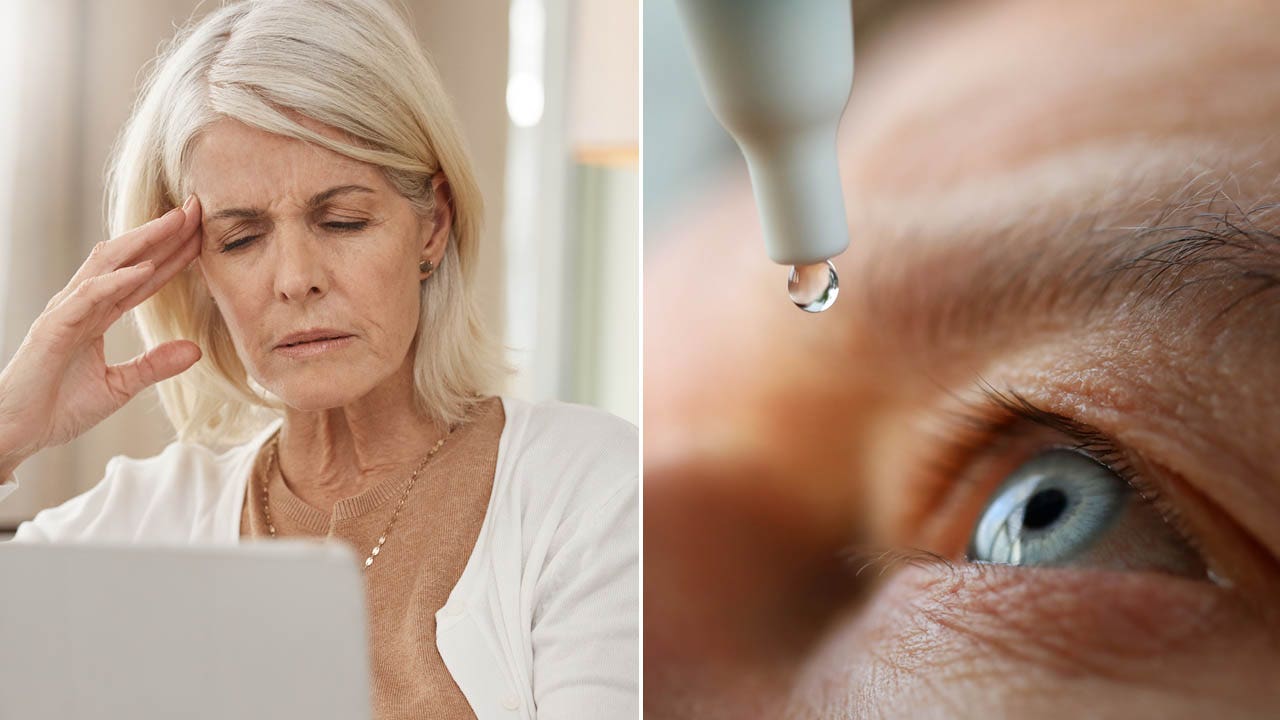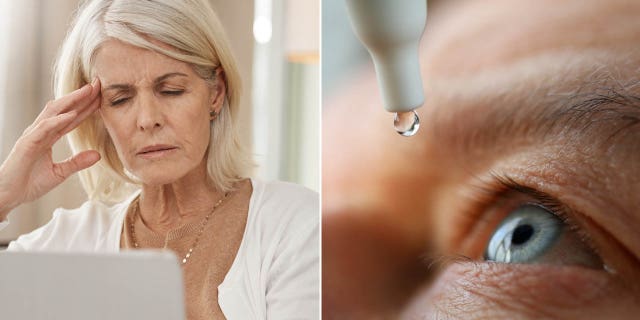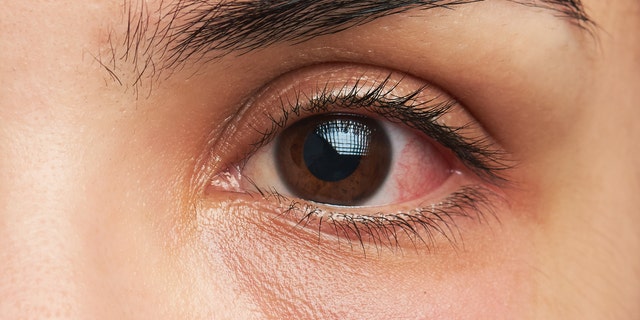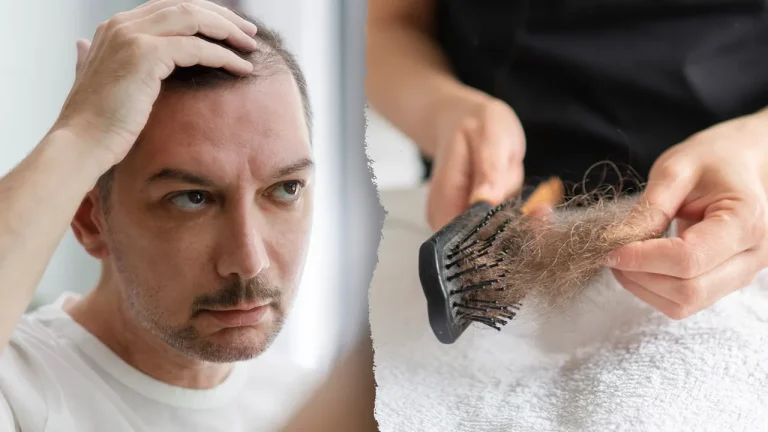
The average American spends nearly seven hours a day looking at screens, reports have shown — and all of that phone, tablet and computer gazing can take a toll on the eyes.
One of the effects of prolonged screen time is dry eye syndrome, which occurs when tears evaporate too quickly.
The inner eyelids are lined by rows of tiny glands called meibomian glands, which secrete a substance that keeps the eyes moist and protected, Dr. Jean Carruthers, a clinical professor in the Department of Ophthalmology at the University of British Columbia in Vancouver, told Fox News Digital.
VISION PROBLEMS COULD MEAN HIGHER DEMENTIA RISK, STUDY FINDS: ‘EYE HEALTH AND BRAIN HEALTH ARE CLOSELY LINKED’
“Normal blinking activates the meibomian glands,” she said.
“When people stare at screens, their blink rate can decrease by up to 66%. If the eyes do not blink enough, the glands can become clogged and, over time, suffer damage.”

The average American spends nearly seven hours a day looking at screens, reports have shown — which can take a toll on the eyes. Keep reading for tips on how to addres this. (iStock)
“Without a healthy tear film, eyes become dry, sensitive to light and irritated,” she added.
Symptoms of dry eye syndrome can include the following, according to Mayo Clinic:
- Eye redness
- Stinging, burning or scratchy sensation
- Sensitivity to light
- Mucus in and around the eyes
- Feeling of having something in the eyes
- Watery eyes
- Blurred vision or eye fatigue
- Difficulty with night driving
Carruthers shared four ways to help reduce dry eye syndrome.
1. Try eye drops or artificial tears for temporary relief
These products help to lubricate the eyes, decrease evaporation of tears and promote healing.
BE WELL: TREAT AND PREVENT PINK EYE WITH A HEALTH SPECIALIST’S TOP TIPS
“If you wear contact lenses, be sure that you are properly cleaning them and have good wearing habits,” Carruthers said.
2. Take care of your eyelid margins
A condition called marginal blepharitis causes inflammation around the roots of the eyelashes and also swells shut the mouths of the meibomian glands in each lid, which can lead to dry eye, Carruthers said.
“These important glands supply the thin ‘veneer’ of oil that goes outside the watery layer of your tear film and prevents it from evaporating,” she explained.

One of the effects of prolonged screen time is dry eye syndrome, which occurs when tears evaporate too quickly. (iStock)
Anyone can experience marginal blepharitis, especially in the winter months, she noted.
To help prevent this, Carruthers recommended cleaning the eyelid margins with a soft tissue, epecially when removing eye makeup.
3. Take brief breaks from the computer or phone
During prolonged periods of screen use, experts recommend following the 20-20-20 rule.
That means taking a 20-second break and looking at a target 20 feet away every 20 minutes, according to Healthline.
4. See a doctor as needed
If dry eyes persist after trying the above steps, the meibomian glands located in the inner eyelids may have become clogged or damaged, Carruthers warned.
CLICK HERE TO SIGN UP FOR OUR HEALTH NEWSLETTER
In this case, she said consulting with an ophthalmologist for more advanced therapies is wise.

If symptoms persist, Carruthers recommended consulting with an ophthalmologist for more advanced therapies. (iStock)
“New treatment options include radio frequency therapy to unclog and restore the gland’s function,” Carruthers said.
CLICK HERE TO GET THE FOX NEWS APP
“A new non-surgical treatment, called Forma-I, employs controlled radio frequency energy that is applied to the outer eyelids and gently warms the meibomian glands,” she also said.
“This, along with slight pressure applied by the radio frequency applicator, restores the flow of the gland’s secretions.”
To read more pieces in Fox News Digital’s “Be Well” series, click here.







